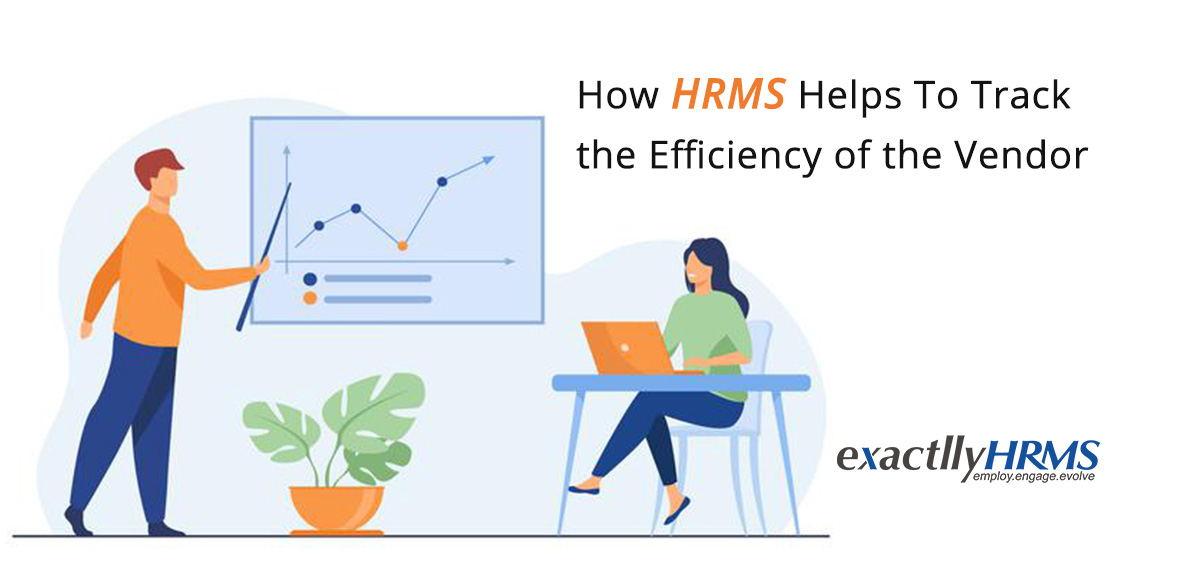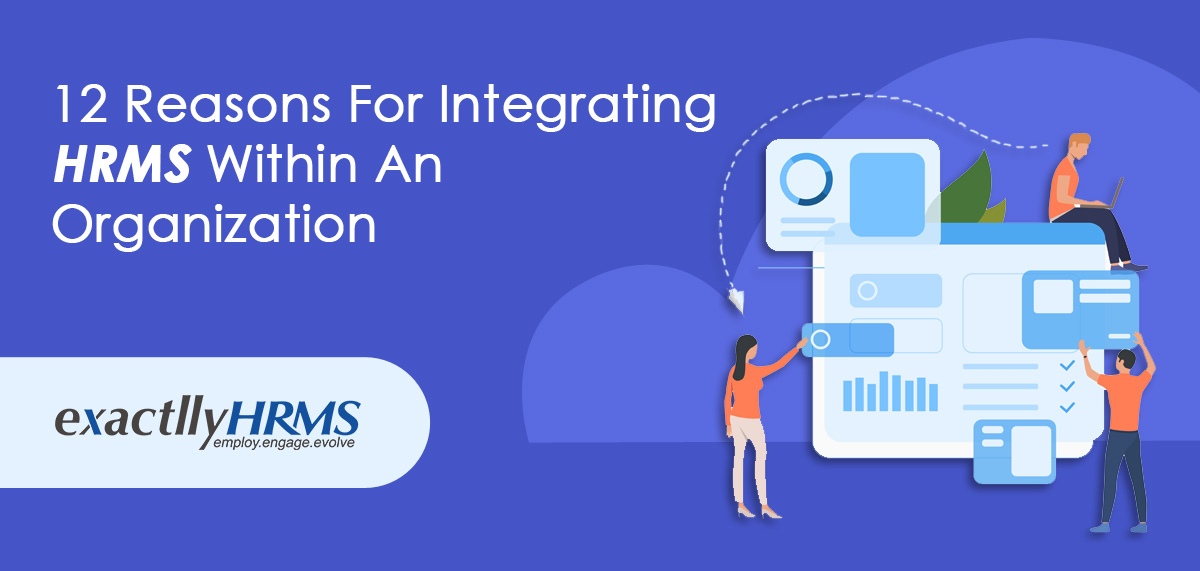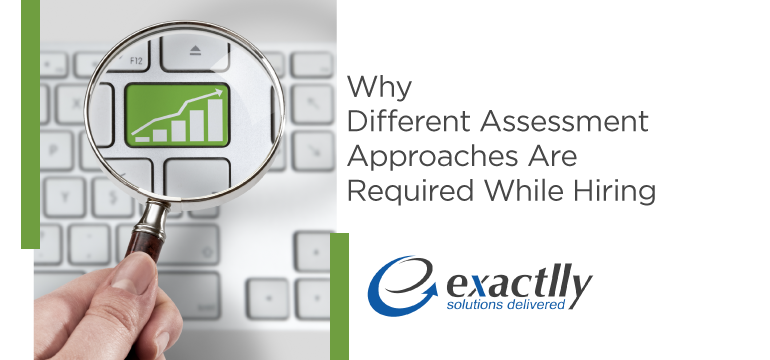How HRMS Helps To Track the Efficiency of the Vendor

Offshore employees
As the organization grows, investment in human capital also increases. HRMS has played an important role in managing the most critical resource of any organization i.e. human resource. HRMS can be used to manage not only your in-house employees but also the offshore employees working under your vendor.
Tracking the Performance of Vendors:
It is often difficult for the companies to track the performance of these employees owing to a lack of direct contact and supervision. You are completely unaware of the labour attrition rate, working conditions, HR policies, employee benefits and compensation offered. Consequently, you are left with no choice but to trust and rely on your vendor.
Though you can have your in-house project manager posted at the offshore location, it costs you a significant chunk of money especially for long-term and blanket projects. The need for HRMS rises when you have globally dispersed offshore teams. It gives you a centralized system of managing all your employees.
Let us discuss the Assistance offered by HRMS:
1. Compensation Management –
- Compensation management eliminates the needs for labour-intensive planning procedure and the high administrative cost associated with it.
- Besides facilitating a simpler compensation planning and process, HRMS ensures transparency for your offshore employees.
- Fair compensation for their services is the key to employee loyalty. HRMS ensures that they are being rightly paid by the vendor depending upon their designation and experience.
- It can simultaneously manage fixed and variable pay structure.
- Salary functionality in HRMS gives you flexible reporting ability.
- It further helps you to record employee salary-related data to help you to identify salary trends, impact on the turnover and take a critical decision on talent retention.
- With an easy-to-use dashboard, you can plan for pay components within the country’s base currency.
- Pay components like provident fund, tax deductions as per the local laws are managed smoothly.
- It can easily integrate with the time and attendance module.
- When the employee quits the service, it has a provision for managing the end of service benefits like gratuity and final settlement.
2. Recruitment Management –
- From furnishing manpower requirement to exit management, the recruitment management module HRMS touches every aspect of manpower needs.
- This module is fully automated with separate dashboards for different managers.
- It allows the managers to keep a track of open positions in the vendor’s organization and the status of candidates during the selection process.
- It also helps you to create offer letters and notify the selected candidates through emails. Internal job posting and referrals are a common way to recruit new candidates.
- HRMS suggests a suitable candidate meeting the required skills.
- Recruitment agencies play a major role in the recruitment of external candidates. HRMS maintains the record of local recruitment agencies and monitors their status.
- Apart from that, interview scheduling and informing the stakeholders involved about the schedule, updates and changes is smoothly managed by HRMS.
- Considering that recruitment is an ongoing process, HRMS gives the ability to archive the resume of prospective candidates in the database.
- Create online tests associated with a particular job profile and give weight-age to these tests during selection.
- Recruiters can even label the resume as shortlisted, rejected, approved, on hold etc for further consideration.
3. Employee Performance Management –
- As your offshore employees are away from you, performance management is the key concern for many organizations.
- Offshore employees, as a matter of fact, are completely unaware of your organizational goals. HRMS helps you to align individual goals with your business strategy to maintain positive results in the long run.
- It enables you to identify high-performing employees so that you can reward them appropriately and set a benchmark for motivating their colleagues.
- It also ensures that the right people are promoted at the right time and at the right position.
- Their performance can even be tracked in real-time to keep a track of their efficiency and suggest a method for improvement.
- Given the relevance of teamwork, HRMS allows to you track critical skills and measure the collective performance of your offshore workforce to establish the need for training and other employee motivation programs.
4. Time Management
- Daily time management is another sought-after concern by many organizations. This module allows you to fix time schedule for employees and induce flexibility in time schedule due to change in employee shift.
- If you have multiple teams located at different offshore locations, then HRMS can help to design schedules for different locations according to the hierarchical level.
- Daily attendance record, entry and exit time is automatically recorded in the system so that you pay only for the number of hours worked.
- It gives you an upper hand over your vendors who may falsely charge you for more hours.
- It also keeps a check on later comers and early goers. Apart from that, it generates overtime wages on a daily basis.
- You can generate time and attendance reports that help you to review the deviation in the working hours against your monthly or weekly manpower planning.
5. Employee Training –
- Whether it is IT, HR or customer service, every offshore employee needs the training to be at par with the changing needs of your customers. It is your responsibility to assess the training conferred by your vendor. In the cases, where you find the training to be deficient, HRMS can help you overcome that.
- HRMS identifies the gap in the skill set of the employees.
- The training module helps you to create and manage employee training courses through a centralized location.
- You can allocate budgets to the training program and assign trainers within the organization.
- It oversees the training status, training schedule and how well it is being conducted. Employees can test their current skill level and self-evaluate.
- Furthermore, you can keep a track of employees who have taken the training course and plan for their career succession.
- If the employees request the training program, then it can be rescheduled automatically.
6. Personnel Profile Management –
- You can never be sure how good your vendors are in maintaining the detailed employee record. The personnel profile management module in HRMS makes ensure that every bit of information related to your employees is at your disposal.
- Maintenance of employee records including personal details like address, phone numbers, etc can be efficiently done through this module.
- Maintain the information of all past employers, experience, designation and pay package.
- Allow the employees to update their bank account information.
- Employees can clearly view their company-specific details like designation, department and reporting manager.
- It can store information about family members, their contact number and occupation. Information about educational qualification, degree and year of passing can all be store easily.
- Furthermore, all documents and photos necessary for keeping employee records can be maintained through this module.
Conclusion:
With so many features offered by HRMS, if incorporated, it will give a boost to your offshoring business. You can concentrate more on business development rather than worrying about vendor efficiency. HRMS helps you to make a permanent arrangement for managing these offshore employees by exercising full control as you do on your in-house employees. exactllyHRMS is one of the leading HRMS providers. To know more about Exactlly, Contact Us and get a Free Demo.






